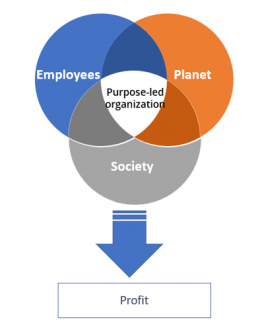The Future of Work is going through a tumultuous time. In a response to tough market conditions, business leaders across industries, including high profile CEOs, are mandating a return to the office. The reason is no more than a desire among managers to boost employee performance by having tighter control over their reports.
Moreover, recent mass layoffs, which are essentially no more than a sugar rush for shareholders, can also be interpreted as a shift in power from employees back to employers. The latter are now in charge, dictating how work gets done for the sake of financial performance.
Will this last? Can we assume that the past few years of progress in the Future of Work have been erased from history?
Are You Ready for the “Era of Disruption”
Returning to a pre-pandemic workplace is not viable. A company with top-down decision making will find it difficult to adapt to a fast-changing environment.
Employees will not give the best of themselves if their voice is not heard, or if they feel disrespected or undervalued. Many will retire early, quiet quitting or even joining the large contingent of gig workers, simply because they feel “they don’t belong”.
The pandemic taught us something profound that goes beyond “where” work happens. It is the realisation that work is a projection of ourselves, our life goals and aspirations, and a means of fulfilment.
Meaningful Work
Brad Bird, the movie director, once said, “Money is just fuel for the rocket. What I really want to do is go somewhere.” This sentence, which reflects the mindset of many people at work today, can be summarised in one single word: Purpose.
With Millennials and Gen Z making up roughly half of the current workforce, and soon becoming our future leaders and CEOs, it is reasonable to expect “corporate purpose” to change business as we know it today. Younger generations want to work for companies with impact, beyond shareholder value.
Purpose is the secret sauce for high performance
Therefore, it’s not “where” work happens but “why” work happens — i.e., the purpose of work that unlocks employee energy. In an era of disruption, when work has direction and is transformed into purpose it is powerful and energising.
Let’s think about a sailing racing yacht, and the teamwork involved to pursue a common goal, a North Star. In a racing yacht, the following applies:
- The interest of the team is always above individual interest
- There is just “one collective head” — they must think and act together
- Every crew member has a critical role to play for the victory, from the leading role of a helmsman to the agile role of trimmers, tuning the sails to ensure maximum thrust.
How does the above apply to your firm? Are your people “energised” to collectively pursue your North Star? Do they feel their roles and responsibilities make an impact?
This is the secret sauce of high-performance organisations: by nurturing their core, business leaders can drive employee performance and team cohesion.
Sustainable companies do business and make profit by placing the welfare of their people, society and the environment as their core purpose. As such, unfair pay, work inequalities, “command and control” management styles and the social disconnect affecting many organisations today is foreign to them.
Companies with a sustainable purpose enjoy a more mature social contract between employer and employees. Thus, the choice of hybrid or full time in the office is actually irrelevant. What matters is that decisions are not top down but in partnership with employees.
Technology Is the Enabler
In a digital world, pursuing the North Star is far more effective (and enjoyable) when employees are given the right technology. Here are some suggestions:
- Devices that are sustainable by design and appropriate for different workstyles
- Digital Workspace solutions for productivity, inclusive collaboration and connection to purpose.
- Workflow automation to free up employee time for more human work
- Online training platforms to continuously elevate employee skills throughout their careers
- Intelligent IT support for employee experience and productivity
- Identity management for digital trust
- Zero Trust security solutions for a perimeter-less workplace
In summary, placing purpose at the core of your business is most effective for employee performance and social cohesion. Numerous third-party studies show that purpose-led organisations outperform their peers.
If you would like to learn more about this and how technology enables a purpose-led organisation, join us at our IDC Future of Work Conference.


